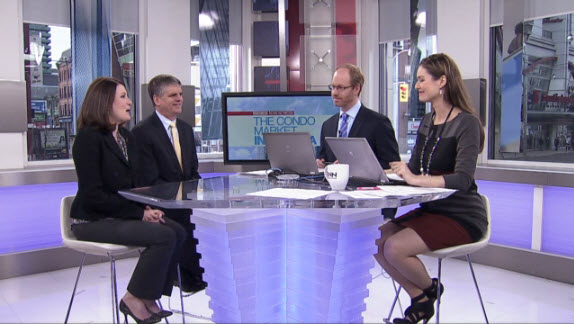Canada’s mortgage rates come down again
March 8th, 2012Consumers are addicted to low mortgage rates, but so are the banks.
Once again, Bank of Montreal is set to lower the rate on its five-year mortgage to 2.99 percent, a reduction of 50 basis points and one of the lowest rates ever offered in this country.
Canada’s fourth-biggest lender is also unveiling a 10-year mortgage at 3.99 percent. Both products are fixed and carry 25-year amortizations.
“We believe these products will allow our customers to borrow smartly,” Frank Techar, head of BMO’s domestic retail bank said in an interview. “They are consistent with the debate around the need to reduce consumer debt levels.”
Only two months ago BMO shocked the industry and the home buying public, unveiling a 2.99 percent five-year home loan. Most of the other banks followed suit within days. The rate on BMO’s product jumped back up at the end of January and the other banks raised rates shortly after.
Residential mortgages are the biggest single asset on bank balance sheets and players have been competing aggressively for marketshare, especially now that profits from their other businesses such as capital markets and insurance are coming under pressure.
Mr. Techar said this is also the first time BMO has offered a 10-year fixed mortgage at such a low interest rate.
The move is aimed at encouraging borrowers to lock into longer-term low rate loans with a 25-year amortization, shorter than the 30-year product that is the industry standard.
So while the headline interest rates on the two mortgages are low, the customer is protected from interest rate fluctuations because they’re fixed — meaning the rate doesn’t change — and the five and 10 year terms are relatively long compared to other popular mortgages.
Mortgage rates are largely dependent on the banks’ funding costs, and with long term interest rates expected to stay close to zero for the next three years, lenders have plenty of flexibility.
Analysts say that such offers and the rate wars they spark draw significant business for lenders, including many new borrowers.
The risk for the banks in longer-term products is that rates rise faster than expected, leaving them exposed.
Both BMO offers are available until March 28. The five-year mortgage is available starting today, while the 10-year offer begins March 11.
Source: John Greenwood, National Post





